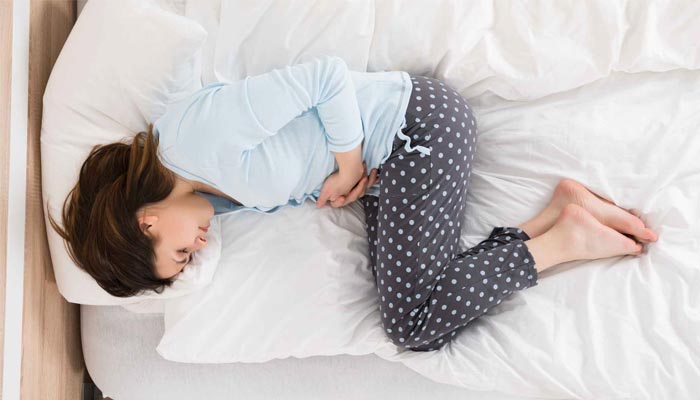
An Overview of PMS Symptoms and Treatment Options
Premenstrual syndrome (PMS) refers to the symptoms a woman may experience a few days prior to her menstrual period. It’s estimated that three out of four women have had symptoms of premenstrual syndrome at some point during their life, such as bloating, mood swings, cramps, and headaches. While PMS symptoms often manifest in a relatively expected sequence, they may vary regarding intensity. The good news is that treatments and lifestyle changes can help you mediate the symptoms of premenstrual syndrome.
Signs and Symptoms of Premenstrual Syndrome
Although there is a wide range of PMS symptoms, most women only endure a few of these issues during their lifetime.
- Anxiety
- Irritability or anger
- Mood swings
- Depression
- Crying spells
- InsomniaFood cravings
- Muscle or joint pain
- Changes in libido
- Weight gain
- Fluid retention
- Constipation or diarrhea
- Bloating
- Fatigue
- Headache
- Acne
- Trouble concentrating
In some cases, PMS symptoms can be intense enough to impact a woman’s daily life. But no matter how severe the symptoms may be, they tend to fade within three to four days after the beginning of a woman’s menstrual period.
When to Consult With Your Physician
If you have been struggling to mediate your symptoms of premenstrual syndrome through lifestyle adjustments, or if the symptoms are impacting your health and daily life, reach out to your physician; he or she can provide treatment options to help you manage the condition.
Treatment Options
Sometimes the best means of reducing the negative effects of PMS symptoms is simply making a few key adjustments in the way you live your life. The following changes may help mediate or alleviate the symptoms of premenstrual syndrome:
- Reduce salt intake to reduce water retention.
- Eat lighter meals to decrease bloating.
- Opt for foods that are rich in calcium.
- Consume complex carbohydrates including whole grains, vegetables, and fruits.
- Refrain from drinking caffeine or alcohol.
- Exercise regularly for at least 30 minutes each day.
- Do yoga, muscle relaxation, or deep-breathing exercises to assist in alleviating anxiety, stress, migraines, or problems sleeping.
Additional Treatments
While lifestyle adjustments can be effective in reducing PMS symptoms, your doctor may suggest one or more of the following treatment options, depending on the intensity of your symptoms.
- Antidepressants, such as Prozac, Paxil, and Zoloft have been effective in treating mood symptoms of PMS.
- Nonsteroidal anti-inflammatory medications including Motrin and Advil can alleviate cramping and tenderness when taken at the beginning or throughout your period.
- Hormonal contraceptives prevent ovulation and therefore reduce the impact of PMS symptoms.
